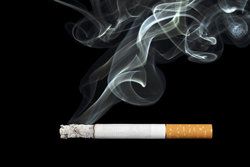How Smoking Affects Oral Health
 The harmful health effects of smoking are widely known, yet people still new smokers are joining the ranks daily. Most people are aware that smoking can cause lung disease and cancer, but many are not aware of the harm smoking does to oral health. Restorative dentistry treatments can help repair the damage years of smoking can have on the teeth. You can help prevent the need for major dental treatments caused by smoking by giving up this harmful habit before it's too late. If you need more convincing, read this overview from Warsaw-based Dental Solutions to understand how smoking affects oral health.
The harmful health effects of smoking are widely known, yet people still new smokers are joining the ranks daily. Most people are aware that smoking can cause lung disease and cancer, but many are not aware of the harm smoking does to oral health. Restorative dentistry treatments can help repair the damage years of smoking can have on the teeth. You can help prevent the need for major dental treatments caused by smoking by giving up this harmful habit before it's too late. If you need more convincing, read this overview from Warsaw-based Dental Solutions to understand how smoking affects oral health.
Oral Health Problems Caused By Smoking
Smoking can lead to many health problems, and it also hinders the body’s ability to heal, But the negative effects of smoking don't stop there. Smoking causes many oral health issues, some of which include:
- Chronic bad breath: Smoking results in chronic bad breath, which is especially strong immediately after cigarette use.
- Tooth discoloration: Smoking, and any form of tobacco use for that matter, can lead to tooth discoloration. The nicotine and tar contained in cigarettes are known to turn the teeth a yellow to a yellowish brown.
- Increased risk of gum disease: The risk of gum disease is increased for smokers for a couple of reasons. Smoking allows plaque to buildup along the gum line, which can lead to gum infections. It inhibits the body's ability to heal, so the body has a hard time recovering from these gum infections. Smoking can also affect the attachment of the soft tissue and jawbone to the teeth, allowing bacteria to infiltrate the space between the gums and teeth, again, leading to gum disease.
- Salivary gland inflammation: Smoking can cause the salivary glands to become inflamed.
- Jawbone loss: Smoking can cause the jawbone to lose density and recede away from the tooth roots.
- Increased plaque and tartar buildup: Smoking increases the amount of plaque and tartar buildup on the teeth and at the gum line.
- Tooth decay: Smoking puts the teeth at increased risk of decay due to the increase in plaque and tartar.
- Tooth loss: Tooth loss can result from smoking as a result of severe decay, severe gum disease, or jawbone loss.
- Development of leukoplakia: Leukoplakia is a condition in which white patches form within the mouth; it is more common in smokers.
- Difficulty healing after oral surgery: Smoking interferes with the body's ability to heal. Smoking reduces the blood oxygen, which is vital to healing cells. Smoking can make healing after oral surgery slow and puts any incisions at risk for infection. Smoking's affect on healing can cause treatments like dental implants fail.
- Increased risk for oral cancer: Smoking and tobacco use in general puts you at risk for a number of cancers. Oral cancer is example.
Schedule a Consultation
Don't let smoking destroy your oral and overall health. There are many dental treatments that can improve oral health and restore the appearance of your smile. To find out more about restorative dentistry options, schedule a consultation today!


